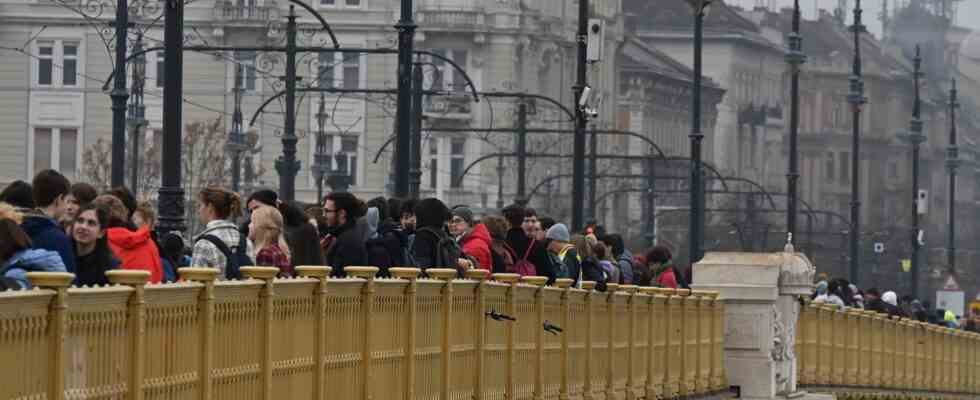Status: 11/30/2022 5:26 p.m
If the EU cuts Hungary billions of euros in subsidies, as threatened, the country is threatened with a massive modernization backlog. The energy transition would falter, investments in education would be lost.
Hungary’s subway is the oldest on the European mainland – and on some lines it is in dire need of repair. EU subsidies would come in handy – but they will remain frozen for now. Also for further projects the money should be missing for the time being.
Kata Tüttö, Budapest’s deputy mayor, who is responsible for local transport and a lot more, lists what still needs to be done urgently: “Everything is connected to the energy transition, including the fight against the energy crisis. We want the capacity of solar systems expand. We are planning an energy agency. Not only for the public buildings, but also for many residential buildings. That is very important.”
The facades are crumbling visibly in the proud capital of Budapest. Saving energy with insulated facades and windows? none.
Modernization backlog feared
The need for modernization is great. Exactly what will be saved in Hungary if the budgeted 7.5 billion are missing from the Community budget cannot be said with any certainty. Many projects are being considered, as listed by Tüttö. There will be a huge traffic jam. The Hungarian state will not be able to close the gap on its own.
Two months ago, Gergely Gulyás, Minister of the Chancellery under President Viktor Orban, angrily rejected rumors that Hungary would slide into national bankruptcy without the EU billions. Economists like the EU expert and economist Zoltán Pogácsa, who teaches at Hungary’s largest university, agreed with him at the time. That is a “significant sum,” said Pogácsa: “But that’s the only reason why there is no state bankruptcy in Hungary. Not even if the entire sum is withdrawn.”
7.5 billion euros, that would be around a third of the 22.5 billion euros that Hungary will claim from the so-called EU Cohesion Fund in the period from 2021 to 2027. Compared to the population figures, Hungary is thus one of the largest net recipients of money in the EU.
Price caps on petrol and staple foods
The dispute with the EU is damaging Hungary elsewhere. The Hungarian currency, the forint, is not far from its all-time low – compared to the euro. For the Hungarians, everything has been noticeably more expensive for months. The government has already had to impose a price cap on petrol and some staple foods. With an average inflation rate of more than 15 percent this year, according to the forecasts, the fall in value would be almost twice as high as the average for the entire EU. The inflation rate is currently 21.1 percent.
The EU billions would be paid out in “hard” euros, which is also important, as Pogácsa explains: “Hungary imports a lot, including energy.” With the EU billions, Hungary would have “access to euros that we normally don’t have.” Because of the weak national currency Forint.
The economics professor called the tugging a “play”, a political showdown. This probably includes the fact that the promised ten percent salary increase for Hungarian teachers was recently linked to the comment: “If the EU funding flows.” Gulyás repeated that again after the EU vote.
Tens of thousands of teachers and their students had demonstrated in recent weeks and put pressure on the Orbán government, and not just because of the money. But the fact is that the wage increase for the educators has nothing to do with the disputed 7.5 billion, but with another program (EFOP Plus), an extra pot for the promotion of “public education,” among other things. It’s not actually intended for wages and salaries, but in the case of Hungary the EU Commission approved it because of the precarious situation of teachers.
Hungary: Before the EU Commission’s vote on subsidies
Wolfgang Vichtl, ARD Vienna, November 30, 2022 4:05 p.m


